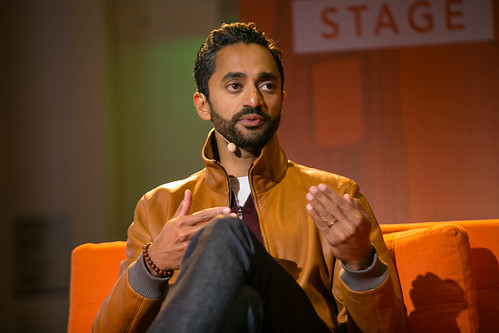Chamath Palihapitiya says venture capitalists also face disruption from AIand startup founders stand to benefit

Artificial intelligence has been inescapable this year. After OpenAI released ChatGPT some 13 months ago, attention turned to how such tools will disrupt careers and industriesand eager venture capitalists poured billions into AI startups that might do the disrupting.
But VCs themselves could get disrupted, according to billionaire investor Chamath Palihapitiya, a former Facebook executive and the CEO of VC firm Social Capital.
We talk about AI as a big disruptor to the big companies and this and that, but AI may be the biggest disruptor to VC in the end, Palihapitiya said on the All-In Podcast this week.
A world where AI proliferates, he said, is positive for founders, who will be able to own more of their companies rather than give away too much equity to VCs.
In the past, he said, a tech startup with $2 million in seed funding might hire seven people and have enough capital to survive for a year and a half, after which it hopefully gained enough traction so that investors would pony up $10 million or $15 million in Series A funding. The downside, of course, is that in exchange for capital, VCs want equity in the company.
But AI tools give founders more leverage, Palihapitiya said, mentioning GitHub Copilot, which makes creating and fixing code much easier. Startups can now hire programmers, perhaps in other countries with lower pay rates, to use such tools to get more done faster, he noted.
The upshot is that, today, a tech startup with the same amount of seed funding might have a three- or four-person team and survive on that $2 million for four years rather than a year a half. Founders could then end up owning 80% of their company with the potential to exit for $50 million or $100 million, and theyve made more money than in a traditional outcome he said.
Its only a matter of time, Palihapitiya added, until they can put two and two together in an Excel spreadsheet to figure out that owning 50% of a $100 million company is greater than owning 18% of some other company when youre massively diluted, or 8% or whatever.
Jason Calacanis, an angel investor, responded that now, instead of founders of a particular cohort competing on who can raise the most money at the highest valuation, hes seen them shifting to, how do I get to profitability and how do I own as much of my company as possible?
Palihapitiya became the face of the SPAC boom-and-bust a few years back due to his involvement with special purpose acquisition companiesshell corporations listed on a stock exchange that acquire a private company, thereby making it public sans the rigors of the IPO process.
This isnt the first time he has mulled the role of VCs in an AI-altered world.
It seems pretty reasonable and logical, he said last month on the podcast, that AI productivity gains will lead to tens or hundreds of millions of startups made up of only one or two people.
Theres a lot of sort of financial engineering that kind of goes away in that world, he said. I think the job of the venture capitalist changes really profoundly. I think theres a reasonable case to make that it doesnt exist.
2023 Fortune Media IP Limited. All Rights Reserved. Use of this site constitutes acceptance of our Terms of Use and Privacy Policy | CA Notice at Collection and Privacy Notice| Do Not Sell/Share My Personal Information| Ad Choices
FORTUNE is a trademark of Fortune Media IP Limited, registered in the U.S. and other countries. FORTUNE may receive compensation for some links to products and services on this website. Offers may be subject to change without notice.
S&P Index data is the property of Chicago Mercantile Exchange Inc. and its licensors. All rights reserved. Terms & Conditions. Powered and implemented by Interactive Data Managed Solutions.


